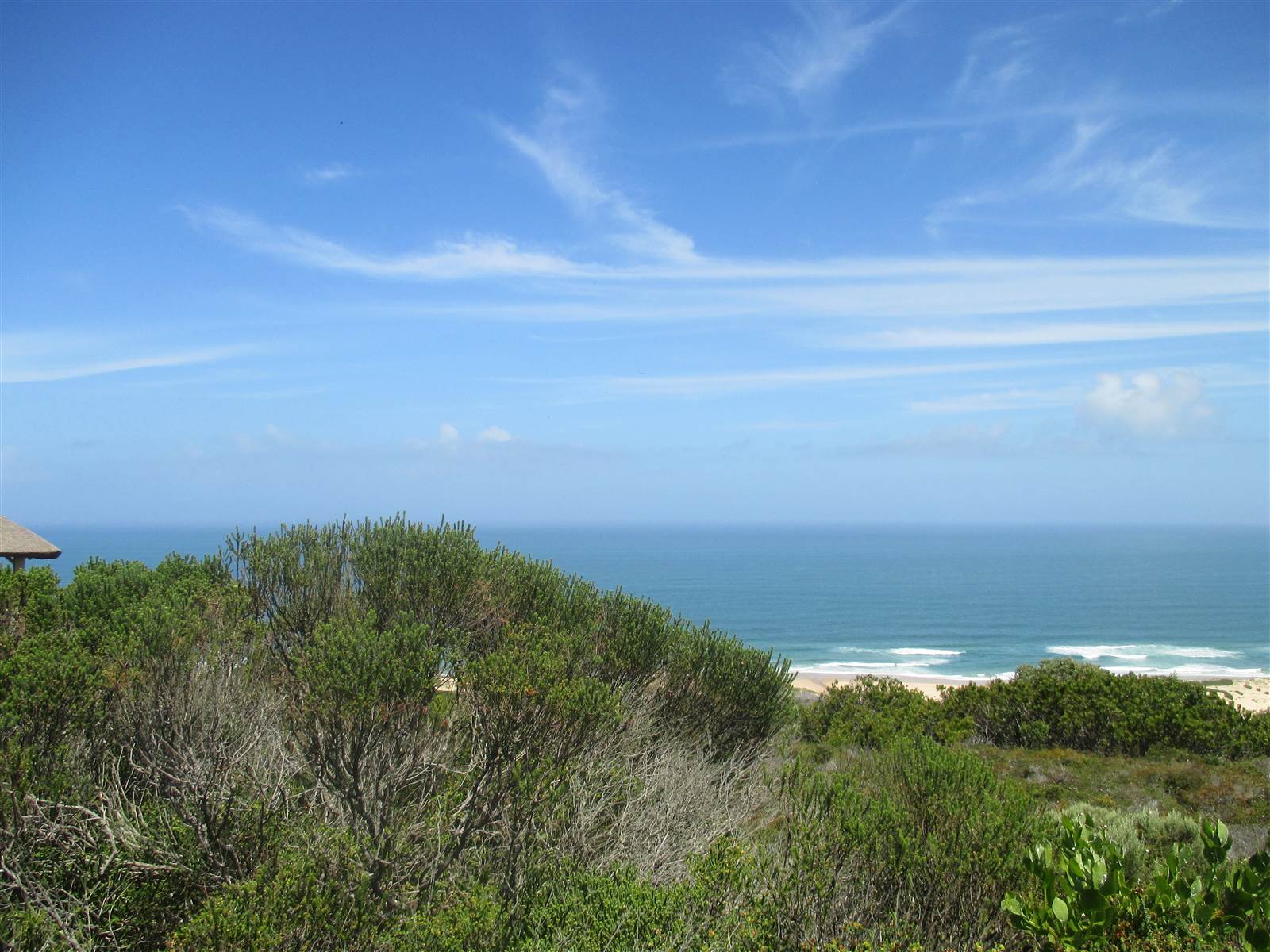


3 616 m² Land available in Moquini Coastal Estate
Unique stand in Moquini. Views for ever.
This unique stand in Dana Bay is situated in one of the most popular streets in Moquini. The stand has a beautiful view over the Blinder River and the boardwalk. The sea view also stretch to Fransmanshoek and Boggomsbay. In the same street is an entrance to the Aasvoelkop walking trail and spectacular views to the gorge and cliffs. In a cul de sac so barely no traffic.
Moquini Coastal Estate (Moquini) is situated in the Garden Route, Western Cape Province in the town of Mossel Bay. Moquini overlooks Nautilus Bay and the Indian Ocean with Frans manshoek, Vleesbaai and Boggomsbaai across the bay. It is nestled in the Fynbos right next to stretches of white beaches, the Blind River lagoon.
ENVIRONMENT
Moquini is an Eco Residential Estate managed as a Nature Reserve with a low-density residential footprint. On the western side Moquini borders the Blinde River flowing through rocky ravines and forming a lagoon that regularly breaks open into the sea. On the southern side Moquini borders the Indian Ocean with a sea front of approximately 1,3 km with mainly open beaches.
Various bird species, mammals, reptiles and fish calls Moquini home. A characteristic of Moquini is the sloping highlands, dramatic rock formations, deep gorges and valleys covered with constantly blooming fynbos.
FAUNA
A myriad of reptiles, small game, ocean mammals and fish can be found on Moquini, the beach and the ocean.
Land mammals that are seen on Moquini include Caracal, Black-backed Jackal, Honey Badger, Cape Grey Mongoose, Cape Bushbuck and Blue Duiker. The carnivore species are obviously shyer than the others.
Sea mammals include the Blue Right whale, sometimes circling for days with their young very close to the beach, dolphins playing in the waves or just passing by and the od seal basking lazily in the sun on the beach.
Reptiles: A wide variety of reptiles are common sights including the leopard tortoise, boomslang and puff adder.
Rodents: Porcupine is common at night and is legendary to give residents a fright - even though they are virtually harmless. If you wake up at night from a scratchy sound outside and note the next morning your bulb plants have been unrooted and eaten, you will guess the reason.
African Black Oyster Catcher: Moquini derives its name from the African Black Oyster Catcher (also known as Moquini) that breeds on the property next to the coast.
FLORA
The property of Moquini consists of various eco systems stretching from the lower dunes starting at the ocean high water mark to the enormous dunes and the fynbos and renosterveld further north from the ocean. Various species of protea and aloes are found among milkwood trees and many other interesting plants.
SECURITY AND PRIVACY
Moquini is fenced and an entrance security gate is manned 24 hours a day. Entrance and exit are strictly controlled to provide residents with the maximum privacy possible. A perimeter security camera system protects the higher risk parts of the perimeter.
PROPERTY
The original development consisted of three gated communities. Moquini Coastal Estate, Fisherman''s Village and Blueridge. Each one of these are independent with their own private entrance, own constitution, Home Owners Association and Excom. Moquini Coastal Estate is approximately 200 hectares in size. There are 68 erven (stands) and one farm (17,7 hectares) in Moquini. The erven are between 2800 and 4200 m2 in size and are full title privately owned.
Property details
- Listing number T4512541
- Property type Residential Land
- Listing date 12 Feb 2024
- Land size 3 616 m²
- Levies R 1 700